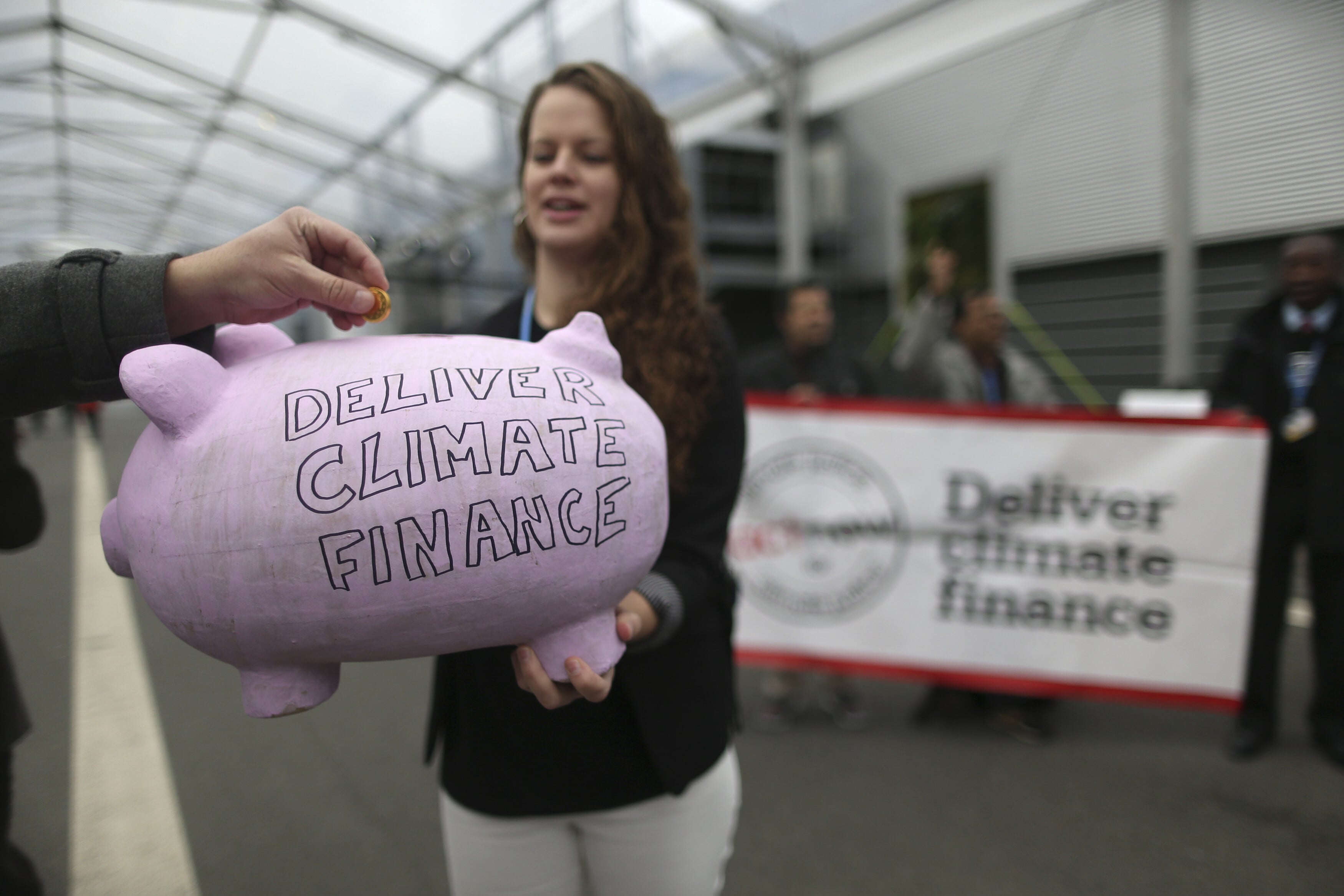No-snow record for Japan’s Mount Fuji, and other nature and climate stories you need to read this week

Mount Fuji's iconic snow-capped peak is becoming an increasingly rare sight.
Image: Unsplash/Yu
- This weekly round-up contains the key nature and climate news from the past week.
- Top nature and climate news: Mount Fuji missing snow for longer than before; What happened at the COP16 biodiversity conference?; UN warns of climate "crunch time".
1. Mount Fuji without snow for longer than ever before
By early October each year, Japan’s highest mountain, Mount Fuji, is usually capped with snow.
But this year, as the end of the month approached, its peaks remained snowless. This marked the latest date since records began 130 years ago that Mount Fuji had not seen snowfall.
Snow falls on the mountain on an average date of 2 October. Last year, it was recorded on the 5th, though it was reported most of that melted by early November due to warm temperatures. At the time of writing, local forecasters were predicting that in 2024, the first snow on the mountain “may be observed on the morning of the 7th”.
So how big a deal is a month or so’s difference? Experts think the lack of snow is one of a host of global indicators of the effects of warmer temperatures on snow and water. Japan just had its hottest summer ever for the second consecutive year, with the warmer temperatures hanging around into Autumn. And a recent study suggested that the climate crisis is behind a lack of snow in the Northern Hemisphere during the past 40 years.
El Nino, a weather pattern that warms the surface waters in the eastern Pacific Ocean, is also known to be pushing temperatures higher.
Warmer winters don’t just have an impact on snow, but also on tourism, local economies and food and water supplies. But it’s not just winters that are warming. Globally, the whole of last year was – by some distance – the hottest year since records began, and scientists already think 2024 will top that record.
2. COP16 biodiversity summit – what you need to know
The 2024 UN Biodiversity Conference 2024 has drawn to a close. The meeting in Cali, Colombia had been called a critical moment for the world’s declining wildlife populations. So, what was decided?
While some experts have questioned the level of political ambition shown at the summit, there were some notable agreements including:
- The creation of a global fund through which companies profiting from nature’s genetic data – for example in the fields of medicine or cosmetics – would pay for its protection. The agreement calls for organizations that make money from databases of this genetic information, known as digital sequence information (DSI), to pay into the fund in exchange for the use of biodiversity. DSI is often sourced by Global North companies from plants and animals in developing nations rich in biodiversity. These companies would pay a percentage of their profits or revenues into the "Cali Fund", of which 50% would then be disbursed to the communities where the resources are discovered.
- Delegates approved the creation of a permanent subsidiary body to ensure the interests of Indigenous people are represented in biodiversity decision-making. The development builds on a growing movement to recognize the role of the descendants of some regions’ original inhabitants in protecting land and combating climate change.
- The conference had hoped to outline a detailed funding plan to protect biodiversity. But how to mobilize and distribute $200 billion a year by 2030 – a target that was set at the previous round of biodiversity talks in Montreal – remained unresolved, to be decided at a later date.
How is the World Economic Forum fighting the climate crisis?
3. UN warns: ‘Climate crunch time’ is here
Taking urgent action to prevent “catastrophic” spikes in temperature is the subject of a new United Nations (UN) report, which has warned that “countries must start curbing emissions immediately”.
Annual greenhouse gas emissions are at an all-time high, according to the UN Emissions Gap Report. Countries are due to announce new national climate commitments in 2025, with some suggesting they will do so at this year’s UN Climate Change Conference later this month.
On the release of the report, the UN Environment Programme urged nations to start “right now”, before these pledges are due, to mobilize action at a scale and speed not seen before.
“Climate crunch time is here,” said UNEP Executive Director Inger Andersen, warning that Paris Agreement’s goal to cap rising temperatures at 1.5°C is at critical risk.
UN analysis shows current national plans to limit carbon emissions would barely cut pollution by 2030, the BBC reports.
Accept our marketing cookies to access this content.
These cookies are currently disabled in your browser.
'Safeguarding the Planet' at Davos 2025
4. News in brief: Other top nature and climate stories this week
The world needs the US to remain in the international climate process to avoid the Paris Agreement becoming “crippled”, UN Secretary-General António Guterres has warned ahead of the country’s presidential election.
More than a third of tree species are facing extinction in the wild, according to new research that says trees are at risk in 192 countries, with land clearance for agriculture, logging, and pests and disease the biggest threats.
According to the Asian Development Bank, the Asia-Pacific region must increase climate adaptation funding by up to 12 times to prepare for the dangers of a warming planet, the Financial Times reports.
This year's Lancet Countdown report, which tracks the effects of the climate crisis on health, finds that areas of the Earth’s land surface affected by extreme drought have trebled since the 1980s, with record levels of heat-related deaths recorded in 2023.
Spain has experienced its most powerful flash flood event in recent memory, AP reports. More than 200 people died and many livelihoods were destroyed as more than a year’s worth of rain fell in eight hours near the city of Valencia. Experts said they believed human-caused climate change had made the floods worse.
An area of forest larger than the size of Mexico could be reforested naturally, if humans leave it alone, new research published in Nature says. Doing so could offset around 23.4 gigatonnes of global carbon emissions over the next three decades.
Finland has started exporting “snow-saving” polystyrene mats, which prevent snow from melting, to ski resorts in countries including Norway and Switzerland, The Guardian reports. The product helps preserve the previous year’s snow for the start of a new ski season, to help tackle increasingly unpredictable snowfall.
5. More from the Forum on the nature and climate crisis
Direct ocean capture, a technology that removes dissolved CO2 from seawater for carbon storage or reuse, is a nascent and promising climate technology. Learn more about four companies pioneering the technique.
The urgency of the biodiversity crisis is undeniable, but there is a path forward. Our latest film explores how businesses can lead the way to secure a nature-positive future. Watch it below.
The annual biodiversity funding gap to protect nature is estimated at $700 billion. A new report from the World Economic Forum provides businesses with guidance on nature finance, highlighting innovative instruments like biodiversity credits that are gaining traction.
Accept our marketing cookies to access this content.
These cookies are currently disabled in your browser.
More on Climate ActionSee all
Tom Crowfoot
July 30, 2025
Tom Crowfoot
July 30, 2025
Wee Kean Fong and Yvonne Zhou
July 29, 2025
Pranidhi Sawhney and Adam Skali
July 29, 2025
David Carlin and Sourajit Aiyer
July 28, 2025





